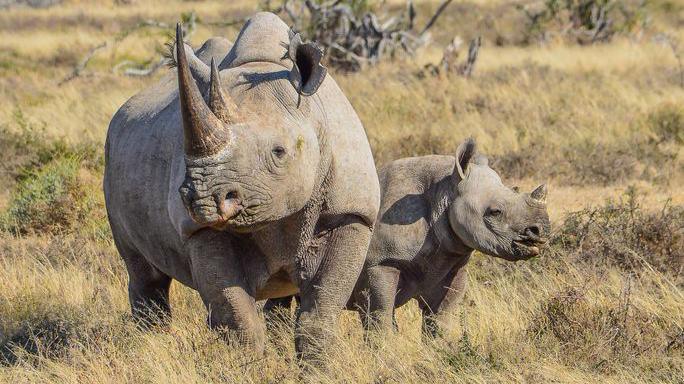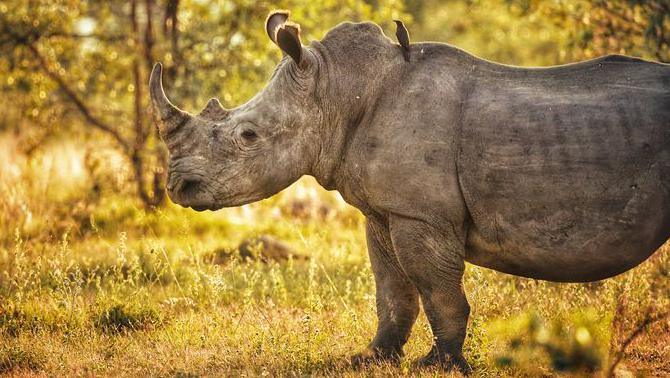Scientists turn rhino horns 'radioactive' to help tackle poaching

- Published
Conservationists in South Africa have launched an unusual new campaign, which they hope will stop the poaching of rhinos.
They have begun injecting the animals' horns with a radioactive material.
The process is safe and harmless to the rhinos, but will allow authorities to detect smuggled horns as they're transported around the world.
Last year experts trialed the project, which proved to be so successful that it has now been rolled out to include more rhinos in the country.
More animal news
- Published31 July
- Published31 July
- Published30 July
How does the process work?

The rhinos are carefully looked after by the team
The process has been developed by scientists at the University of the Witwatersrand in South Africa.
Called the Rhisotope Project, it involved six years of research and testing to make sure it was safe and harmless to the animals.
In order to carry out the procedure, the rhino is put to sleep, so it doesn't feel any discomfort.
Scientists then injects two tiny little radioactive chips into the horn.
According to the team, the dose is low enough that it does not impact the animal's health or the environment in any way.
However, it is hoped that it can help stop poaching as the dose means the horn can't be consumed by humans.
The radiation is also "strong enough to set off detectors that are installed globally" at international border posts.
So if a poacher tries to transport a horn with the radioactive chip in it, it can be detected.
Jessica Babich, head of the Rhisotope Project, explained why helping the animals means so much to the team.
She said: "Our goal is to deploy the Rhisotope technology at scale to help protect one of Africa's most iconic and threatened species.
"By doing so, we safeguard not just rhinos but a vital part of our natural heritage," Babich added.
How big of a problem is rhino poaching?

Poachers can get a lot of money for horns on the black market where the price by weight rivals that of gold.
South Africa has the largest rhino population in the world, and hundreds of the animals are poached there every year.
According to conservation charity Save the Rhino, each year since 2021, more than 400 rhinos have been poached in the country.
The horns of African rhinos are often exported to places such as Asia, were they are used in traditional medicine and also seen as a status symbol.
There are two different species of African rhino - white rhinos and black rhinos.
White rhinos are considered threatened, while black rhinos are critically endangered.
